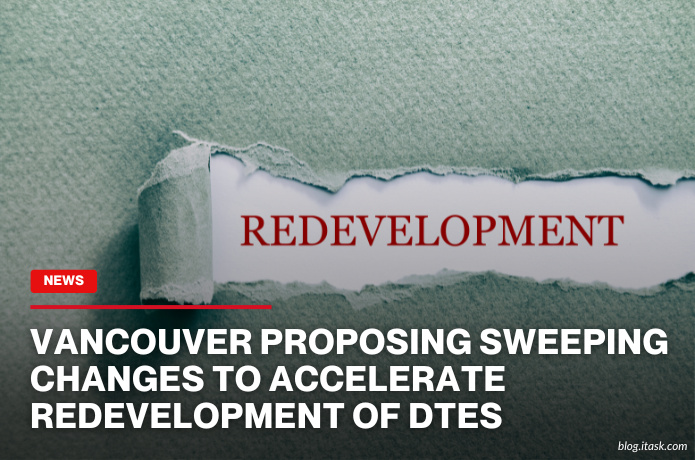Vancouver Proposing Sweeping Changes To Accelerate Redevelopment Of DTES
Vancouver Proposing Sweeping Changes To Accelerate Redevelopment Of DTES

The City of Vancouver is proposing major changes to speed up redevelopment in the Downtown Eastside (DTES), aiming to tackle the area's ongoing housing crisis. The plan focuses on replacing aging Single Room Occupancy (SRO) buildings and increasing affordable housing options for low-income residents. City officials are seeking public input on these proposals, with recommendations expected to be presented to City Council later this year.
The DTES, which includes neighborhoods like Chinatown, Gastown, and Strathcona, has long faced challenges such as poverty, homelessness, and deteriorating housing. The 2014 Downtown Eastside Plan set goals to create 4,400 new social housing units and upgrade 2,200 SRO rooms over 30 years. While some progress has been made, the city acknowledges that more needs to be done to meet these targets.
One significant proposed change is adjusting the housing mix requirement in the Downtown Eastside Oppenheimer District (DEOD). Currently, developments must include 60% social housing and 40% market rental units. The new proposal suggests shifting to 20% social housing and 80% market rental, aiming to attract more private developers to invest in the area. Additionally, developers would be encouraged to include 10% of units at deeply discounted rents to replace SROs, with strong tenant protections in place.
To facilitate these changes, the city plans to increase allowable building heights and densities in certain areas, making it more feasible for developers to construct new housing. Streamlining the development process, including rezoning and heritage considerations, is also part of the proposal to accelerate SRO replacement and housing construction.
Public engagement is a key component of this initiative. The city held an information session on May 12 and conducted an online survey that closed on May 16. Feedback from residents, organizations, and stakeholders will be compiled into a report to inform the final recommendations. The city emphasizes the importance of community input in shaping policies that address the complex needs of the DTES.
While these proposed changes aim to revitalize the DTES and provide more housing options, some community members express concerns about potential gentrification and displacement of low-income residents. The city asserts that tenant protections and a focus on deeply affordable housing are central to the plan. As Vancouver moves forward with these proposals, balancing development with the preservation of the DTES's unique community remains a critical challenge.
